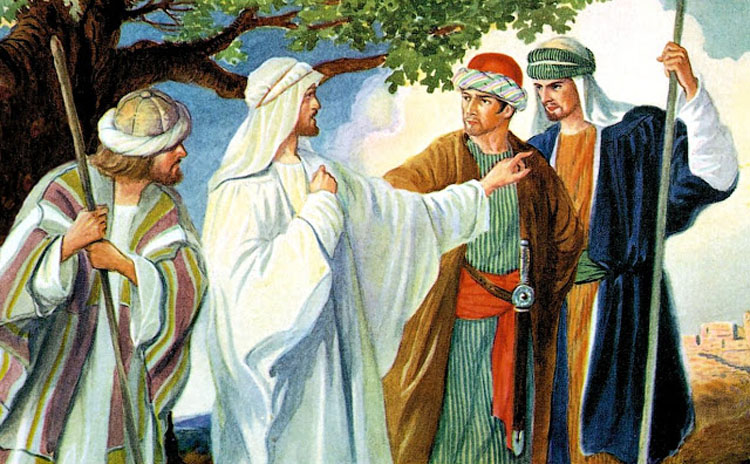XXXI SUNDAY IN ORDINARY TIME - Mark 12:28-34
To keep all the commandments and remain faithful to God, the scribes, many of whom belonged to the Pharisees, scrutinised thoroughly the Scriptures made a list adding up to 613 norms and rules. In such a situation, many asked about the greatest or the first commandment. It was with such a question that one scribe came to Jesus. Listening to this Sunday’s gospel, we get the impression that he was well-intentioned; indeed, he was looking for confirmation of his understanding.
The first and most important commandment is recited in the Jewish daily prayer called “Shema”, which is a quotation from Deuteronomy 6:4-6:
“Hear, O Israel: The Lord our God, the Lord is one. You shall love the Lord your God with all your heart and with all your soul and with all your might. And these words that I command you today shall be on your heart.”
Jesus answered the scribe’s question with the recitation of the Shema. Yahweh (the Lord) is the only God and we must love him with all our heart, with all our soul and with all our might. He is the reason for our living and must occupy the centre of our lives.
We are going through difficult times, in which God has been put aside as if he was dead or did not exist at all. It seems that we don’t need him, and have substituted him by ourselves and the products of our hands and minds, like science and technology. Is that the way to happiness, peace and self-fulfilment? Or “we have given birth to wind. We have accomplished no deliverance in the earth” (Is 26:18), as Isaiah wrote about a similar attitude during his time. Humanity needs to reencounter itself and that will happen only when we recognise God and are ready to be touched by his love and be guided by his word. To love God we must allow ourselves to be touched by his love and recognise his primacy in everything.
A relationship of love with God will have a bearing on the society we live in. Being loved, we learn how to love, sharing love with others. That’s why the second commandment is the direct result of the first. If we love God, then we are directed to love others. Quoting Leviticus 19:18, Jesus said: “The second is this: You must love your neighbour as yourself.” To love myself is not the same as selfishness. Self-love means to accept myself and recognise my dignity as a child of God. Since God’s image shines on me, I can recognise it in others as well. Like me, they are children of God. If I have a poor self-image, I will end up hating myself because I feel worthless. Despising myself, I will despise the others as well.
When I love my neighbour, I will be happy with his happiness, feel his pain when he is going through difficult moments and I will be proud of his achievements. In love, there is no place for envy, jealousy and hatred. Love is the only way to build a society where justice and peace reign.
Lord, may your Kingdom come.



